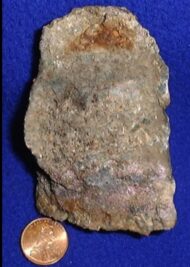A surplus of cobalt chemicals used to make high-power lithium batteries has seen Chinese refiners switch to producing metal, sending prices down 30% in recent months.
The electric-vehicle revolution is expected to boost demand and prices for cobalt, which is critical to the current generation of lithium-ion technologies. However, such a shift is unlikely to happen until the next decade, when production and sales of electric cars are really seen ramping up significantly.
London Metal Exchange cobalt prices hit US$98,000 a tonne in April stemmed from robust demand among traditional sectors such as jet engine makers and falling metal supplies, not from battery makers.
Prices have since crashed to around $69,750 a tonne as cobalt metal started to come out of China, trading sources said.
An excess of cobalt sulfate in China has pressured prices of the chemical, which is at a discount of roughly $1,500 a tonne to the metal, spurring some Chinese refiners to make metal instead for export to the United States and Europe.
China is the world’s largest manufacturer of cobalt sulfate made from intermediate products such as concentrate and cobalt hydroxide, sourced from the Democratic Republic of Congo, which holds the world’s largest resources of the mineral.
According to metals analysts CRU, the DRC produced 69,350 tonnes of cobalt contained in concentrate and other raw materials in the first half of this year, compared with 49,800 tonnes in the same period last year.












